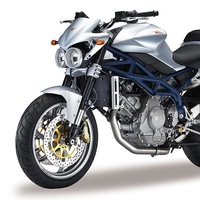
Сложно перевести текст помогите кто может! Text 3. Criminal Process in England and Wales (1)
Under English law there are three types of trial processes in criminal law. The types of criminal trial are "summary" or "indictment" and the third type is "either way" which is an offence that can be tried in either court. Summary trials take place in the lower court, i.e. the Magistrates Court. Indictment trials normally start in the Magistrates Court before they are referred to the higher court, the Crown Court for trial. (2) The criminal court process in England and Wales starts with an indictment. An indictment is the legal term for the criminal charges that form the basis of the trial. The prosecution of the indictment is generally carried out the Crown Prosecution Service or CPS. The CPS are the legal arm of the state and they decide if the information and evidence provided by the police is solid enough for criminal charges to be brought against the defendant. This initial process is termed the committal. Committal proceedings are dealt with by a magistrate. The magistrate will access the evidence. (3) Less serious offences are dealt with in the Magistrate Court, these types of offences are called summary offences. Offences that fall into this group include low level motoring offences, minor assault, some arson cases and other low level crime such as criminal damage and taking without the drivers consent. There are limits to the types of cases that a Magistrates Court can deal with. Trials in the Magistrate Court take place in one of two ways. The most common of these is a trial that takes place before a bench of "lay magistrates". This must be made up of at least three people but they are not normally lawyers or solicitors. The less common type of Magistrates Court trial is that of a Stipendiary Magistrate. (4) Crown Courts deal with the more serious criminal offences. These crimes are titled indictable offences and cover a wide range of acts. Indictable offences include murder, manslaughter, kidnapping, blackmail and armed robbery. People charged with these offences have their first court appearance in the Magistrates Court before the Crown Court. At this stage the Magistrate must decide if the defendant should be released on bail or to keep him/her in custody. This stage of the process is called the first appearance. In the Crown Court the trial is overseen by a Circuit Judge or a High Court Judge and a jury. The status of the judge depends on the seriousness of the offence and complex nature of the offence. A jury is only called in the defendant enters a plea of "not guilty". (5) “Either way” cases are those that are between the two levels and can be tried by magistrates or by a Judge and Jury in a Crown Court. Magistrates can "decline jurisdiction" on cases that they believe are too serious for them to deal with. Then the case must be dealt with in the Crown Court. An adult defendant can ask for trial by jury in a crown court and the court system must agree to this. (6) The judge supervises the criminal trial by attempting to ensure clarity and fairness of the proceedings. The judge must also decides on legal issues (such as whether a piece of evidence is admissible - should be put before the jury) and also instruct the jury as to the correct view to the case. In England and Wales juries are made up of 12 people aged between 18 and 70 years old. It is the role of the jury to decide if the defendant is either guilty or innocent. The jury will access the evidence before them and come to a verdict. The verdict can either be a unanimous verdict where all the jurors are united in their view or a majority verdict where the majority of the jury has agreed on an outcome. Trial by Jury has been central to English Common Law since the Magna Carta was signed by King John in 1215. In criminal cases, the prosecution must prove guilt of the defendant. The defendant does not have to prove his/her innocence. The standard of proof required in law is that the case must be proved beyond reasonable doubt. If a defendant is found guilty then it is the judge that will pass sentence and also set the length of time the defendant will serve for their crime. There is a course to appeal after the first trial but there needs to be compelling evidence for an appeal to be heard. (7) Criminal law in England is always developing and the recent Heathrow robbery trial was the first trial without a jury in England for nearly four hundred years. The trial was carried out in front of a judge because of fears of jury tampering. 0
0
 0
0
Ответы на вопрос
 Внимание! Ответы на вопросы дают живые люди. Они могут содержать ошибочную информацию, заблуждения, а также ответы могут быть сгенерированы нейросетями. Будьте внимательны. Если вы уверены, что ответ неверный, нажмите кнопку "Пожаловаться" под ответом.
Внимание! Ответы на вопросы дают живые люди. Они могут содержать ошибочную информацию, заблуждения, а также ответы могут быть сгенерированы нейросетями. Будьте внимательны. Если вы уверены, что ответ неверный, нажмите кнопку "Пожаловаться" под ответом.

 0
0
 0
0

Text 3. Уголовный процесс в Англии и Уэльсе (1) В английском праве существует три типа судебных процессов по уголовным делам. Типы уголовных судебных процессов: "краткое разбирательство" или "обвинительное", и третий тип - "на усмотрение суда", что означает, что преступление может быть рассмотрено в любом из судов. Краткие разбирательства проводятся в нижнем суде, то есть в мировом суде. Обвинительные разбирательства обычно начинаются в мировом суде, прежде чем они будут переданы в высший суд, коронный суд, для рассмотрения. (2) Процесс уголовного судопроизводства в Англии и Уэльсе начинается с обвинительного акта. Обвинительный акт - это юридический термин для уголовных обвинений, которые составляют основу судебного разбирательства. Обвинение осуществляется в основном Государственной прокуратурой или ГП. ГП является правовой инстанцией государства, и они решают, достаточно ли надежными являются информация и доказательства, предоставленные полицией, чтобы предъявить уголовные обвинения против подсудимого. Этот начальный процесс называется предварительным рассмотрением. Предварительное рассмотрение осуществляется магистратом. Магистрат оценит доказательства. (3) Менее серьезные правонарушения рассматриваются в Мировом суде, эти типы правонарушений называются краткими правонарушениями. К этой группе относятся незначительные нарушения правил дорожного движения, незначительные нападения, некоторые случаи поджога и другие незначительные правонарушения, такие как умышленное повреждение имущества и угон транспортного средства без согласия водителя. Есть ограничения по видам дел, с которыми может справляться Мировой суд. Разбирательства в Мировом суде проводятся одним из двух способов. Самый распространенный из них - это разбирательство перед коллегией "присяжных магистратов". В ней должно быть не менее трех человек, но они обычно не являются юристами или адвокатами. Менее распространенный тип разбирательства в Мировом суде - это разбирательство перед магистратом с оплатой. (4) Коронные суды занимаются более серьезными уголовными правонарушениями. Эти преступления называются обвинительными преступлениями и охватывают широкий спектр действий. К обвинительным преступлениям относят убийство, убийство по неосторожности, похищение, шантаж и вооруженное ограбление. Люди, обвиняемые в этих преступлениях, имеют свое первое судебное заседание в Мировом суде перед Коронным судом. На этом этапе магистрат должен решить, следует ли отпустить подсудимого под залог или содержать его/ее под стражей. Этот этап процесса называется первым появлением. В Коронном суде разбирательство наблюдает Судья Окружной суд или Судья Высокого суда вместе с присяжными. Статус судьи зависит от серьезности правонарушения и сложности дела. Присяжных вызывают только если подсудимый заявляет о своей невиновности. (5) "На усмотрение суда" - это дела, которые находятся между этими двумя уровнями и могут быть рассмотрены магистратами или Судьей и присяжными в Коронном суде. Магистраты могут "отказаться от юрисдикции" по делам, которые, по их мнению, слишком серьезны для их рассмотрения. Тогда дело должно быть передано в Коронный суд. Взрослый подсудимый может запросить рассмотрение дела присяжными в коронном суде, и судебная система должна согласиться с этим. (6) Судья надзирает за уголовным процессом, стремясь обеспечить...
 0
0
 0
0
Похожие вопросы
Топ вопросов за вчера в категории Английский язык
Последние заданные вопросы в категории Английский язык
-
Математика
-
Литература
-
Алгебра
-
Русский язык
-
Геометрия
-
Английский язык
-
Химия
-
Физика
-
Биология
-
Другие предметы
-
История
-
Обществознание
-
Окружающий мир
-
География
-
Українська мова
-
Информатика
-
Українська література
-
Қазақ тiлi
-
Экономика
-
Музыка
-
Право
-
Беларуская мова
-
Французский язык
-
Немецкий язык
-
МХК
-
ОБЖ
-
Психология
-
Физкультура и спорт
-
Астрономия
-
Кыргыз тили
-
Оʻzbek tili






















